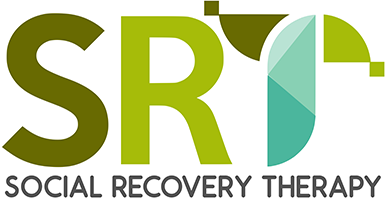Views of young people in Malaysia on mental health, help‐seeking and unusual psychological experiences
Full Article Clio Berry, Daniel Michelson, Ellisha Othman, Jun C. Tan, Brioney Gee, Joanne Hodgekins, Rory E. Byrne, Alvin Lai Oon Ng Nigel V. Marsh Sian Coker, and David Fowler ABSTRACT Aim Mental health problems are prevalent among young people in Malaysia yet access to specialist mental health care is extremely limited. More context‐specific research is needed to understand the factors affecting help‐seeking in youth, when mental health problems typically have first onset. We...
Assessing social recovery of vulnerable youth in global mental health settings: a pilot study of clinical research tools in Malaysia
Full Article Clio Berry, Ellisha Othman, Jun Chuen Tan, Brioney Gee, Rory Edward Byrne, Joanne Hodgekins, Daniel Michelson, Alvin Lai Oon Ng, Nigel V. Marsh, Sian Coker and David Fowler ABSTRACT Background A social recovery approach to youth mental health focuses on increasing the time spent in valuable and meaningful structured activities, with a view to preventing enduring mental health problems and social disability. In Malaysia, access to mental health care is particularly limited...
Measuring adherence in social recovery therapy with people with first episode psychosis
Full title Christine Lowen, Jo Hodgekins, Katherine Pugh, Clio Berry, Mike Fitzsimmons, Paul French, Catarina Sacadura, Max Birchwood, Chris Jackson, Eleanor Baggott, Mark Bernard and David Fowler ABSTRACT Background: The SUPEREDEN3 study, a phase II randomized controlled trial, suggests that social recovery therapy (SRT) is useful in improving functional outcomes in people with first episode psychosis. SRT incorporates cognitive behavioural therapy (CBT) techniques with case management and employment support, and therefore has a different...
Social recovery therapy: a treatment manual
Full Article David Fowler, Joanne Hodgekins, Clio Berry, Timothy Clarke, Jasper Palmier-Claus, Catarina Sacadura, Adam Graham, Christine Lowen, Ann Steele, Katherine Pugh, Samantha Fraser, Mike Fitzsimmons and Paul French Abstract Social Recovery Therapy is an individual psychosocial therapy developed for people with psychosis. The therapy aims to improve social recovery through increasing the amount of time individuals spend in meaningful structured activity. Social Recovery Therapy draws on our model of social disability arising...
Structured activity and multiple group memberships as mechanisms of increased depression amongst young people not in employment, education or training
Full Article Clio Berry, Matthew J. Easterbrook, Liza Empson, and David Fowler Abstract Aims Young people Not in Employment, Education and Training (NEET) are at increased risk of depression, yet mechanisms of this association are poorly understood. We hypothesised that being NEET has both behavioural and social identity consequences and that reductions in structured activity and multiple group memberships underlie increased depression in this group. Our purpose was to assess first whether depression was...
Social Recovery Therapy in improving activity and social outcomes in early psychosis: Current evidence and longer term outcomes
Full Article David Fowler, Joanne Hodgekins, and Paul French Abstract Background Social Recovery Therapy (SRT) is a cognitive behavioural therapy which targets young people with early psychosis who have complex problems associated with severe social disability. This paper provides a narrative overview of current evidence for SRT and reports new data on a 2 year follow-up of participants recruited into the Improving Social Recovery in Early Psychosis (ISREP) trial. Method In the ISREP study 50 participants...
Social recovery therapy in combination with early intervention services for enhancement of social recovery in patients with first-episode psychosis (SUPEREDEN3): A single-blind, randomised controlled trial
Full Article David Fowler, Jo Hodgekins, Paul French, Max Marshall, Nick Freemantle, Paul McCrone, Linda Everard, Anna Lavis, Peter Jones, Tim Amos, Swaran Singh, Vimal Sharma, and Max Birchwood Abstract Background Provision of early intervention services has increased the rate of social recovery in patients with first-episode psychosis; however, many individuals have continuing severe and persistent problems with social functioning. We aimed to assess the efficacy of early intervention services augmented with social recovery...
Lived experiences of negative symptoms in first‐episode psychosis: A qualitative secondary analysis
Full Article Brioney Gee, Joanne Hodgekins, Anna Lavis, Caitlin Notley, Max Birchwood, Linda Everard, Nick Freemantle, Peter B. Jones, Swaran P. Singh, Tim Amos, Max Marshall, Vimal Sharma, Jo Smith, and David Fowler Aim Exploring how negative symptoms are experienced and understood by individuals with lived experience of psychosis has the potential to offer insights into the complex psychosocial processes underlying negative symptom presentations. The aim of the current study was to investigate...
Creating an innovative youth mental health service in the United Kingdom: The Norfolk Youth Service
Full Article Jon Wilson, Tim Clarke, Rebecca Lower, Uju Ugochukwu, Sarah Maxwell, Jo Hodgekins, Karen Wheeler, Andy Goff, Robert Mack, Rebecca Horne, and David Fowler Abstract Young people attempting to access mental health services in the United Kingdom often find traditional models of care outdated, rigid, inaccessible and unappealing. Policy recommendations, research and service user opinion suggest that reform is needed to reflect the changing needs of young people. There is significant motivation...
Young people’s experiences of Social Recovery Cognitive Behavioural Therapy and treatment as usual in the PRODIGY trial
Full Article Brioney Gee, Caitlin Notley, Rory Byrne, Tim Clarke, Jo Hodgekins, Paul French, and David Fowler Abstract Aim The PRODIGY trial is an ongoing randomized controlled trial of Social Recovery Cognitive Behavioural Therapy (SRCBT), a new intervention designed to improve social functioning in young people at risk of long‐term social disability due to severe and complex mental health problems. The aim of this qualitative sub‐study was to understand trial participants’ experiences of SRCBT...
